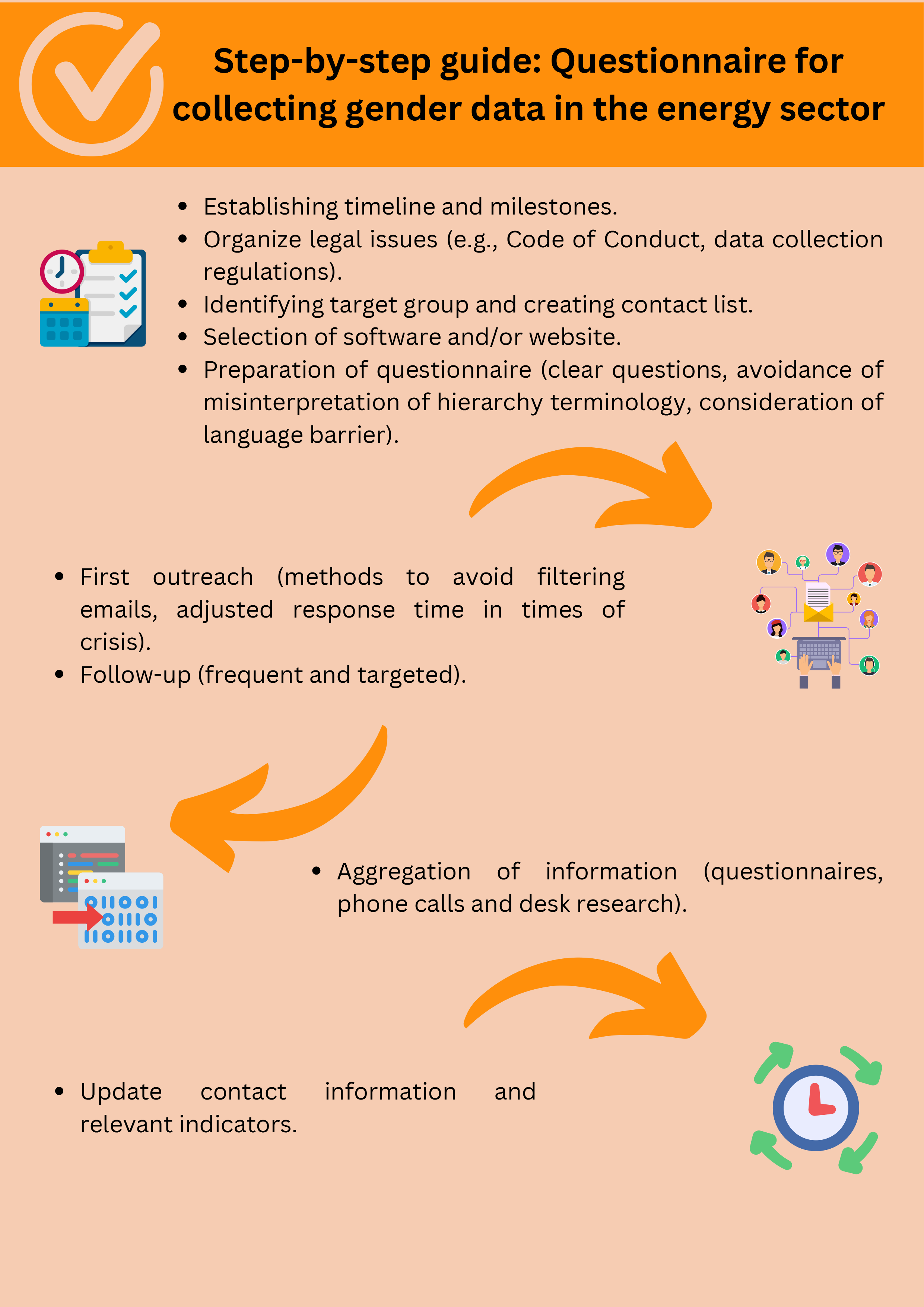Gender Equality Initiative
The Energy Community Secretariat formally endorsed its commitment to gender equality with the publication of its Declaration on Gender Equality in March 2021—marking a key step toward embedding inclusion in energy policy and practice.
The declaration outlines three core commitments:
-
Raising awareness on gender mainstreaming in all energy policies and interventions supported by the Secretariat
-
Applying gender-responsive procurement, by integrating gender equality and women’s empowerment into procurement procedures
-
Ensuring balanced participation, by aiming for equal representation of women and men at all events—avoiding gendered roles such as assigning moderation exclusively to one gender
In 2022, a fourth commitment was added: promoting the collection and use of gender-disaggregated data in the energy sector to support evidence-based policymaking.
The initiatives below demonstrate how these principles are put into practice—turning commitments into concrete, measurable action.
REFERENCE DOCUMENTS
USEFUL LINKS
-
Awareness raising
Awareness raising
-
Institutional Commitments & Leadership
-
Mar 2021 – Declaration on Gender Equality: The Secretariat officially endorsed its gender equality commitments, including gender mainstreaming, gender-responsive procurement, and equal representation at events.
-
Mar 2021 – Joined International Gender Champions: In 2021, the Secretariat became a member of the global leadership network, with Artur Lorkowski, the second Director, representing the institution as a Gender Champion.
-
Sep 2021 – Gender and Energy Compact Partner: Became an official partner of this UN-led coalition promoting a just and inclusive energy transition.
-
Jun 2022 – Member of the EU Equality Platform for the Energy Sector: Contributing to EU-wide dialogue and exchange on best practices.
-
-
Capacity Building & Awareness
-
Apr 2021 – Training on Gender Parity Pledge: Secretariat staff received training to strengthen gender-balanced participation in events and discussions.
-
Feb 2024 – Internal Guidelines on Gender Parity in Representation: Published to help staff implement gender balance in visibility and engagement. The guidelines include:
-
Ensuring gender-balanced speaker panels when organising events
-
Promoting balanced representation when speaking at external events
-
Avoiding gender-stereotyped roles, such as assigning only women to moderation or facilitation
-
-
Dec 2023 – Study on Energy Poverty & Gender: Published a study exploring the gender dimensions of energy poverty and the need for inclusive policy responses.
-
-
Events & Outreach
-
Mar 2021 – First Conference on Gender Equality: Brought together over 130 stakeholders to explore how gender perspectives can be integrated into energy transition policies and projects.
-
Jun 2022 – Webinar on Gender-Disaggregated Data: Co-hosted with the EU, IEA, IRENA and others, highlighting the role of data in advancing gender equality in the energy sector.
-
Mar 2023 – Webinar: Can the Energy Transition Be Gender-Just?: International experts and policymakers discussed inclusive transition strategies, with a focus on coal phase-out.
-
Apr 2024 – Webinar: Women Entrepreneurs in Energy: Examined the barriers faced by women launching businesses in the energy sector and explored solutions such as better access to finance, networks, and supportive policies.
-
Apr 2025 - Webinar: Gender Newsflash & Stocktake of Gender Data
-
-
Institutional Commitments & Leadership
-
Gender-Disaggregated Data
Gender-disaggregated data
-
Paper on collecting gender-disaggregated data
This policy brief aims to identify data gaps in terms of gender-disaggregated data in the energy sector and to raise awareness within the EnC on the need for a future, comprehensive study of women's participation in the energy labour market and corresponding data collection in Contracting Parties. It provides recommendations for possible standardization of data collection processes related to gender data in the energy sector across the region. For doing so, relevant European Commission datasets are used as a baseline to discuss two things. First, where data is generally not collected, and second, what additional indicators should be included in the datasets.
The relevant datasets are defined in accordance with the recently published ECAsset Study (Ouziaux, et al., 2021), which specifically targets the need for gender-specific data collection in the energy job market in EU Member States.
-
Step-by-step guide

-
Paper on collecting gender-disaggregated data
-
Event management and procurement
Event management and procurement
-
Gender parity at events
As part of the Gender Equality Initiative, the Secretariat monitors and complies data on the gender parity of its speakers' invited to the Energy Community events. It circulated its staff members two short guides on how to further improve gender parity at events in May 2023. The guides were updated in January 2024.
-
Gender-responsive procurement
The Energy Community Secretariat enforces gender equality through gender-responsive procurement. When the subject of the contract allows, the Secretariat seeks to collaborate with suppliers who give importance to gender equality in their work and put in place relevant policies. To the extent possible, it also requests gender balanced teams for the execution of contracts. Moreover, gender equality is considered when it comes to evaluations of offers.
-
Gender parity at events

